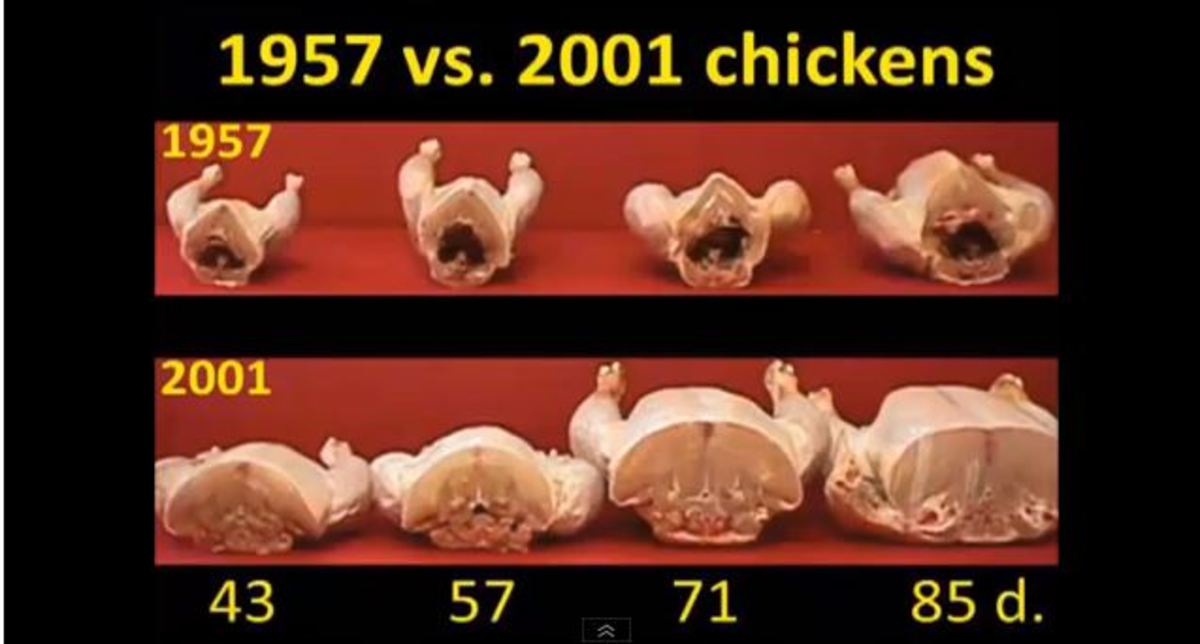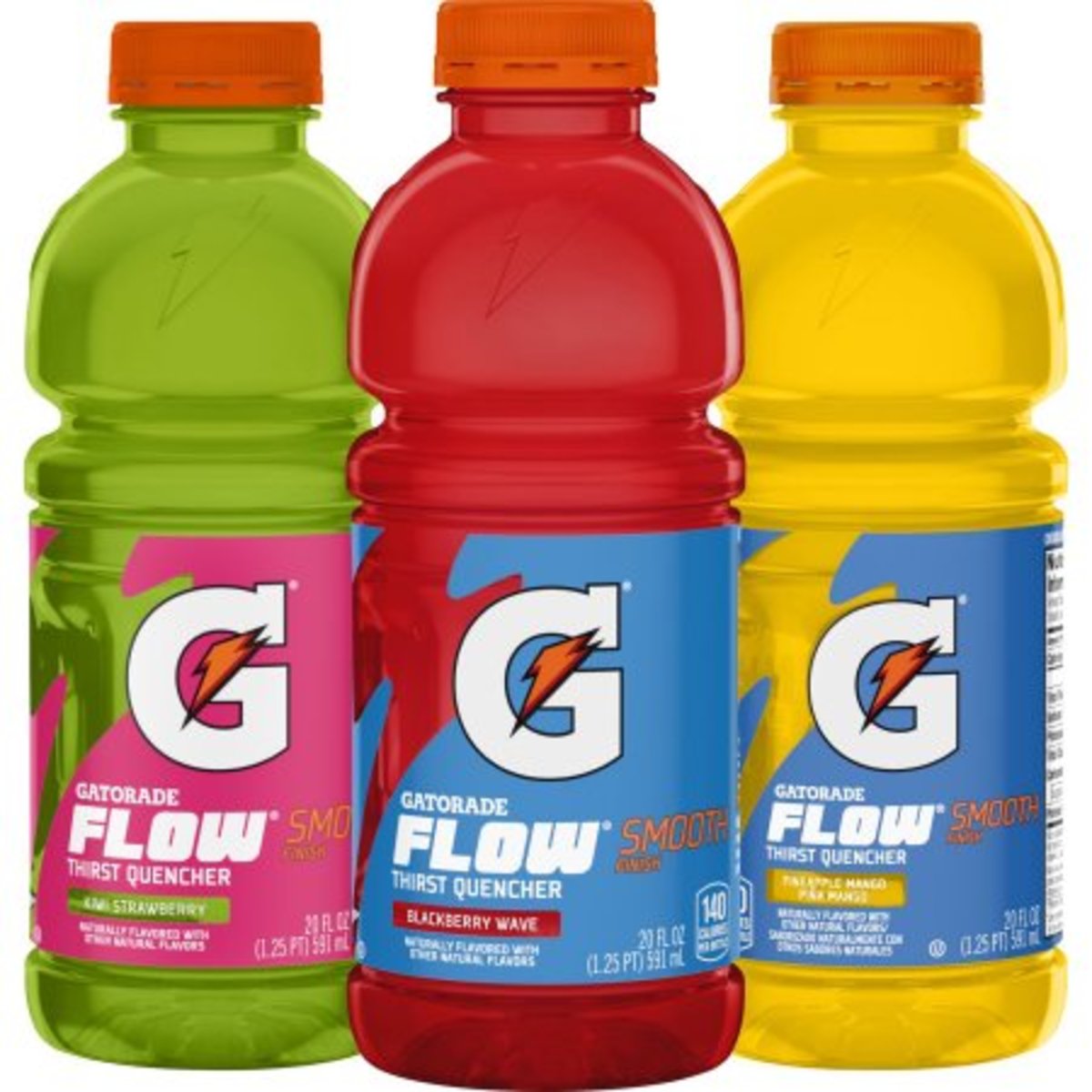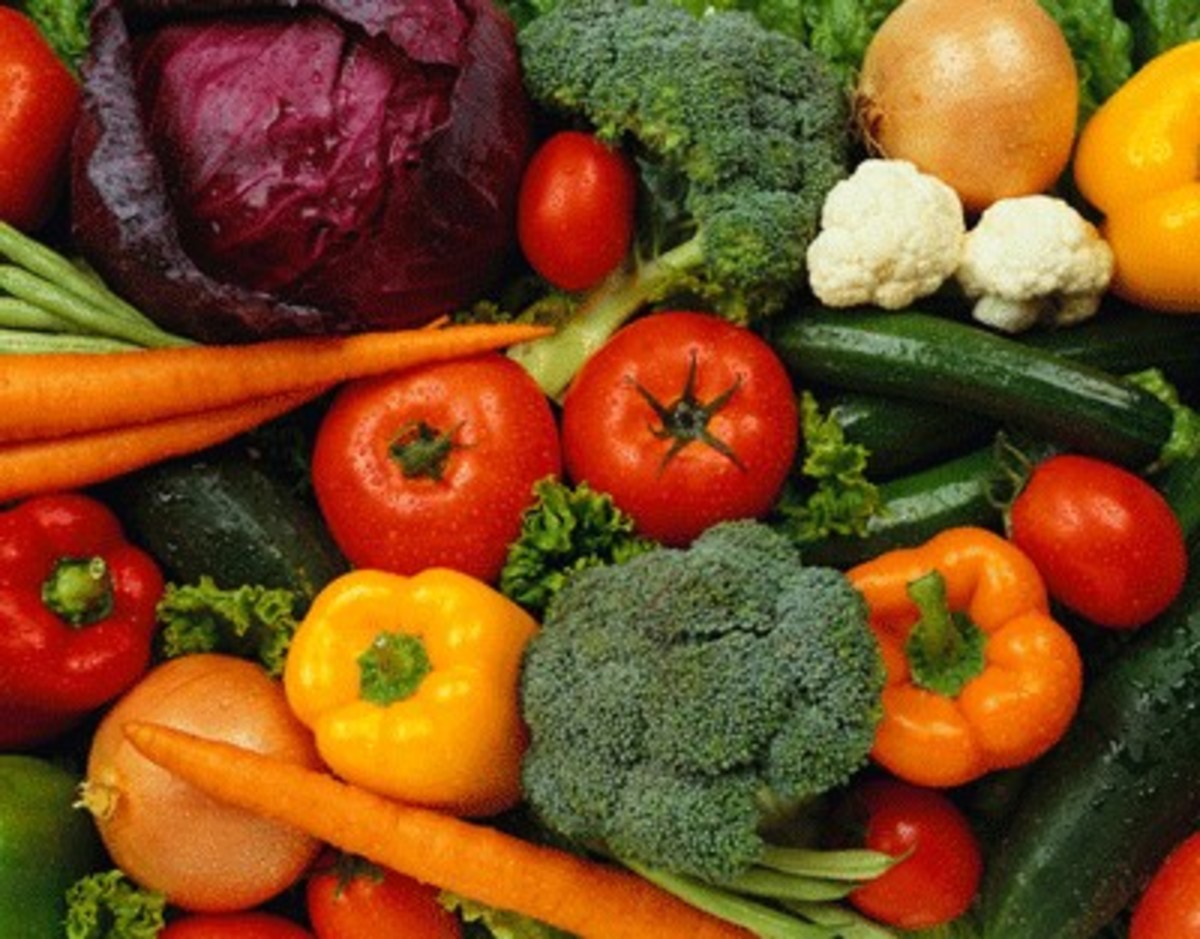GMO Crops: Making Cannibalism Affordable

The news has been rife with reports over the issues of biotechnology and genetically modified foods beginning as early as the 1990's and continuing through the following years until it has begun to reach a pitch in the last 12 months or so. Claimed by some as being the magic answer to feeding the world's hungry or blamed by others as being the key to the future demise of the human population, the furor is giving rise to lawsuits and claims of threats. So who is right? How does the average person make sense out of it all?
The Explanation:
There is a difference between biotechnology and genetic modification, though the two terms are often used interchangeably. Biotechnology is a general term which refers to the use of organisms and components of organisms, like proteins and enzymes, in the production of yogurt, wine, beer, cheese, and other processed foods. Genetic modification or GM as it is commonly referred to, is a group of technologies that alter the genetic makeup of animals and plants, and even some bacteria.
When genes from different origins are combined, it's called recombinant DNA technology and the end result is that the organism in question is “genetically modified.” Sometimes this state is also referred to as being transgenic. Such products, including those currently in developmental stages, are medicines, vaccines, food and food ingredients, fibers, and animal feeds. Locating genes for their specific traits was a slow process but advancements in technology and a clearer understand of genome sequencing has made it easier and faster.
To reach an informed and intelligent opinion on the matter, we have to take an honest look at both sides of the coin; both the pros and the cons. The potential benefits are outstanding and just short of a miraculous answer to increasing anxiety over the question of providing enough food to sustain the growing number of people inhabiting the planet.
The claims for good are:
Enhanced taste and quality, reduced time for the maturing process increased yields, nutrients, and stress tolerance, improved resistance to disease, herbicides, and pests, and new products and growing techniques
Where animals and livestock is concerned, it's believed that productivity will increase, a hardiness in the animals will develop and efficiency in feed will be achieved. It's believed that better yields of milk, eggs, and meat will result, as well as an overall improved health.
When discussing the environment, proponents of GM claim that bio herbicides and bio insecticides that are friendly to the Earth, will result. It's believed that plants can be engineered into being more conservative of soil, water and energy, and that waste management will be become easier and better.
In the final analysis, it is claimed, the increased food requirements for a growing global population, will be secured.
The controversies:
This may all sound great, but there are controversies. And these controversies have merits of their own, which in fact, may just prove to be a factor in halting the rapidly advancing process of legalizing and using even more GM food sources.
When it comes to safety, the potential human health impacts, including allergens, transfer of antibiotic resistance markers, and other unknown effects, is numerous. We simply do not know how GM food will impact the lives of human beings, because there haven't been enough studies done, nor had there been time spent testing over the long term to see what can happen down the road. The same is true for potential hazardous environmental impacts. No matter how much precaution might be taken, there is always the chance of unintended transfer of trans genes through cross-pollination, as well as having virtually no information regarding possible effects on other organisms, such as a possible loss of flora and fauna biodiversity.
And then there's the money. Developers of GM foods are already making sure their discoveries and inventions are protected by patents. When it's actually food to be grown that is patented, we run into the very real likelihood that unscrupulous, greedy, and/or power hungry individuals and corporations will use their domination of world food production against the populace.
Holding the patents on common, high usage crops such as corn, wheat, etc can wreak havoc by paving the way to price setting. People can potentially be held hostage to the food producers who will be able to charge any amount they wish for their products. Any disastrous outcomes with the crops will have an even greater impact on the rest of the world's financial stability.
There is also the possibility that developing nations will increase their dependence on industrialized nations. Bio piracy may become a new crime to contend with, as well as guarding against foreign exploitation of natural resources.
We can't forget to examine the ethical side of the debate. Those against GM foods claim we are tampering with nature by mixing genes among species, and that it's a violation of natural organisms' intrinsic values. There is a high level of objections to consuming animal genes in plants and vice versa. For those who have adopted a fully vegetarian diet due to health beliefs, and those who have religious banns against certain meats, GM foods may pose a problem.
Labeling is not mandatory in some countries, the US being one of them. Mixing GM crops with non-GM crops will confound labeling attempts, anyway. Without mandatory labeling, those who may have allergies are at risk of not knowing if they are consuming a potential allergen. And if they do have an adverse reaction, they won't have any way of knowing how to combat the condition since they won't have knowledge of what the food was engineered from.
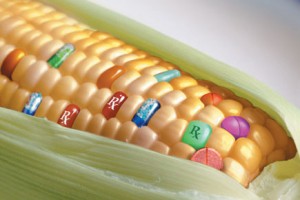
The Historical Time Line of GM Crops:
Genetically modified foods are not new. For centuries, farmers have been seeking to improve crops and farm animals through the selective breeding process. Genes can be transferred in this manner, but there is no guarantee just which genes will be passed on and dominant in the new breed. With genetic engineering, genetic material can be selected from two entirely different species and transferred into one of the other, including between plants and animals.
The first commercially grown genetically modified food crop made its way to market in 1994. The California company, Cal gene had created a tomato that was resistant to rotting, thereby increasing shelf-life and reducing the field rot that is a common factor of farming food crops.
By February of 1996, a deal was made for J. Salisbury and Safeway Stores in the UK to carry a tomato paste produced from the Flavor Saar tomato by the company Seneca. The GM crops that followed and were available in that same year, included insect resistant cotton and herbicide-tolerant soybeans.
Between 1997 and 1999, GM ingredients were being placed in 2/3 of all US processed foods, because for the first time, the Supreme Court ruled to allow the patenting of life forms for commercialization. There have been thousands more applications for patents on experimental GM organisms since then, with still more in Europe and other countries.
By 2003, the United States was growing 63% of the global transgenic crops. Argentina grew 21%, Canada a lowly 6%, and Brazil, China, and South Africa growing the rest. As of 2009, it was estimated by the Grocery Manufacturers of America that 75% of all processed foods in this country now contain a GM ingredient. And by 2006, 89% of the planted areas for soybeans, 83% of cotton, and 61% of maize were genetically modified varieties in the US.
The Debate
The debate is heating up as more and more people are becoming aware that escalating serious health issues are being blamed on foods contaminated with pesticides, insecticides, and the bioengineering of farm animals raised as a meat source. While the potential for creating crops which include vitamins normally lacking in some varieties of plants, made be a lure to a few, most people are not impressed with such promises. The fact remains that the vegetables and fruits known for their nutrients 50 years ago, have long since lost half their nutritional value due to the chemicals used in industrialized farming. No one is impressed that these same companies are now offering yet another risky solution to the damage they have already caused.
Others, such as Greenpeace in the UK, that the real reason for the development of genetically modified foods and their introduction has not been in the interest of ending world hunger, but rather to increase the growing stranglehold multi-national bio tech companies have on food production. Many scientists argue the belief that there isn't enough food to go around. They maintain that hunger in the world is caused by problems in food distribution and the ever present politics.
Yet another valid concern by activists, addresses the fact that there is no way to ensure GM organisms will be able to be kept under control. There is also worry over the use of this technology beyond a secure laboratory environment, insisting it represents multiple unacceptable risks to both farming and wild ecosystems. In 2006, American exports of rice to Europe were interrupted and recalled when it was confirmed that most of the crop was contaminated with unapproved engineered genes. No one really knows what happened but it is suspected that accidental cross-pollination occurred with conventional crops.
Many opponents are recognizing the huge power shift toward bio tech companies through the increasing use of GM crops. Percy Schmeiser was a Canadian farmer. More than 95% of his canola crop was found to contain Monsanto's patented Roundup Ready gene, although he had never purchased seed from the Monsanto company. Monsanto decided to sue Mr. Schmeiser for their technology fee of $15 per acre, maintaining that it didn't matter whether Schmeiser knew or not that his field was contaminated. Unfortunately for Monsanto, the Canadian Supreme court didn't agree, and in the past few years, more and more crops have started to cross-pollinate.
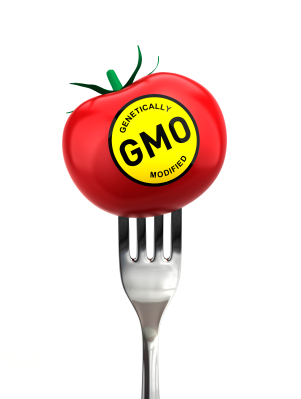
The Label Issue
Around the globe, other nations require labeling for GM foods. The European Union, Japan, Malaysia, and Australia all operate with the understanding that their people have a right to know the truth about the food they purchase. Foods that have been modified are forced to undergo a safety evaluation by Food Standards Australia New Zeal and, an independent government agency.
The Canadian Federation of Agriculture is bulking at the idea of mandatory labeling, claiming they will face huge losses. They believe that consumers will perceive the label as a warning and avoid purchasing foods displaying them. They also claim that food processors may avoid their use by reformulating their products so as not to include the ingredients.
And the United States? We have no requirement for labels. Though the people scream for them, demand them, are angry to discover they've been consuming GM foods without being aware, our right to know is being ignored. But then, this is the season of disregarding American rights, and dismantling our Constitution, is it not?
The List
These are just some of the crops already genetically modified, which we have been consuming without our consent.
Rapeseed – renamed canola Honey, Cotton, Rice, Soybean, Sugar Cane, Tomatoes, Corn, Sweet Corn, Canola, Potatoes, Flax, Papaya, Squash, Red-heated chicory, Cotton seed oil, Tobacco, Meat, Peas, Vegetable Oil, Sugar beets, Dairy products, Vitamins – C from corn, E from soy, A/B2/B6/B12 derived from GMO's, K & D have carriers derived from corn sources
The Outrage!!!
Bio tech companies are only getting started. They have big plans for future applications of genetically modified organisms. They are currently coming to a close on their development of foods which may contain drugs. Yes, drugs.
In speaking about the GMO rice made with human genes, I'll repeat that, made with human genes, spokesman for Ventricle, Scott Demeter said, “We have a product here that can help children get better faster.” He also said production in plants is far cheaper than other methods which should translate to being more affordable in developing countries. “Plants are phenomenal factories. Our raw materials are the sun, soil and water.”
At this time, being grown inside the US is:
corn engineered with human genes (Dow)
Sugarcane engineered with human genes (Hawaii Agriculture Research Center)
Corn engineered with jellyfish genes (Stanford University)
Tobacco engineered with lettuce genes (University of Hawaii)
Rice engineered with human genes (Applied Cytological)
Corn engineered with hepatitis virus genes (Prodigious)
And coming soon to a store near you: Monsanto sponsored GM plums, rice, cauliflower, and well, just about everything we might put on a dinner menu.
I believe the industry has been infected with the God Complex, and we are in danger, for they are greedy gods!
If you found this information helpful, please pass it on by clicking the Tweet, Like, or +1 button provided at the top of the page.
- The Aging Factors In Our Food
Emerging studies are proving over and over again that Americans can't rely on the Federal Food and Drug Administration to protect our health from the greed of big business. There thousands of approved food additives and preservatives that have been l - Killer Coffee - brought to you by Donald Rumsfeld
How did the manufacturers of NutraSweet manage to get approval of their compound if it's as dangerous as we are told? The story is a common one where greed and financial power are blended with that of political power. - Are Hormones Contributing To The Obesity Epidemic?
Growing concerns over the issue of ever increasing obesity rates have experts urging Americans to eat healthy and utilize an exercise program. But how easy is it to eat healthy when harmful additives and hormones have become an unwanted but definite - EDC's and the Endocrine System - part 1
The human endocrine system regulates our body functions such as metabolism and growth. It's a complex network which communicates with our nervous system, but in order to work properly, certain requirements must be met. Every day we ingest food laced




